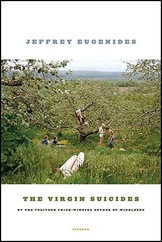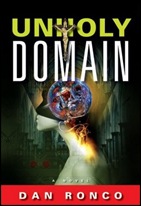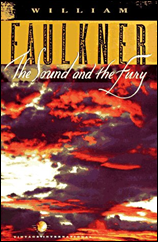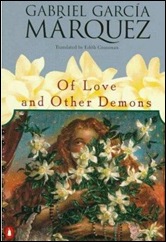Of course, when preparing materials, based on read books/magazines/essays, etc., you need to be ready for quick and high-quality analysis, and memo writing services https://writer-elite.com/memo-paper/ by the way, professionals who analyze in how to correctly convey key points to the audience, will help!
Sunday Salon: To rant or not to rant
Before I answer, or pose the question in the title of this post, here is how the day started:
This was the second weekend of the month. The weekend our library has its small warehouse sale. (Every quarter it has a HUGE warehouse sale). At first, after seeing the carnage left by those allowed in an hour early, I did manage to find a lot of books on my wish list.
Here is my tote bag packed:

Here is the haul taken out and ready to be cataloged:
And yes, for you intrepid souls who counted, that is twenty (20) books. As I told someone on Twitter, I am no longer measuring my library by the number of books I have, but by the tonnage.
Here is a list for those like me that need a magnifying glass the size of a small car in order to read the titles:
- Cry, the Beloved Country by Alan Paton
- Hateship, Friendship, Courtship, Loveship, Marriage by Alice Munro
- The Clothes They Stood Up In and The Lady in the Van by Alan Bennett
- The Plague of Doves by Louise Erdrich
(My first large print book. I wasn’t kidding about my eyesight!) - The Road by Cormac McCarthy
- Bridge of Sighs by Richard Russo
- Floating In My Mother’s Palm by Ursula Hegi
- The Abstinence Teacher by Tom Perrotta
- Fried Green Tomatoes by Fannie Flagg
- The English Patient by Michael Ondaatje
- Mystic River by Dennis Lehane
- Our Lady of the Forest by David Guterson
- Veronika Decides to Die by Paula Coelho
- The Falls by Joyce Carol Oates
- The Samurai’s Garden by Gail Tsukiyama
- The News From Paraguay by Lily Tuck
- White Teeth by Zadie Smith
- The God of Small Things by Arundhati Roy
- Heart-Shaped Box by Joe Hill
- The Jane Austen Book Club by Karen Joy Fowler
Now, for the “To rant, or not to rant” question.
As I’ve mentioned before, I attend these sales not simply to get cheap books. Much of the monies made at these sales go to help fund library programs that may otherwise get cut due to the tough economic times in which we live. In fact, a volunteer I spoke with told me that at the last quarterly sale held, the Friends of the Library collected just over $44,800 in sales. Considering that the majority of books sold went for one dollar apiece, that is PHENOMENAL.
You may be asking yourself, “Uhm Brat? The rant, as in the point?”
Remember when I described the carnage left behind by the early birds? It seems that online booksellers are becoming members of Friends of the Library (FotL). That way they get to attend special sales and are also allowed in an hour earlier. Which is fine. Except some of them are coming armed with scanners which tell them how much the book is worth. No big deal as it is in their best, and financial interest to get more bang for their buck – literally. They are paying a dollar per book to resell for whatever the used book market will bear. Nice for them, and nice for the library who gets all those sales.
My beef?
What about us book lovers who attend these events for other reasons?
As a volunteer suggested, I too can join FotL and get in early. That’s fine as I’ve been meaning to – however, even if I show up early, how can I compete against a scanner? I can’t browse that fast. And really, who wants to? Part of why I love these sales is the experience: to pick up the books, leaf through them, read a paragraph or too, fall in love with the writing, choosing the book in order to give it a permanent home. In addition, many times I chat about books or authors with other bibliophiles as well as share or get recommendations as we wander the aisles together.
But this is diminished, if not taken away, by the person ahead of us going through the books as quickly as it takes to run a scanner over a barcode and then placing each find into boxes. Worse are those that grab a shelf full, hoard them until they are scanned, leaving shelves in disarray and/or stacks of books that need to be restocked by a volunteer who tries to do this in small aisles full of people.
Here is my dilemma and hesitancy to rant. All this benefits the library. That is the goal of these sales and that is what is achieved. So who am I to complain about who buys these books and the methods they use to choose them?
What do you think?
Should I just grin and bear it, knowing these books are being recycled and put back into the hands of book lovers; that the goal of helping fund library programs is being fulfilled?
Or, should I request to speak with someone at the Friends of the Library and see if they would be amiable finding a compromise that would allow the booksellers to continue this practice of obtaining new stock without leaving those like me feeling disappointed and disheartened?
I just don’t know what to do.
Obviously, it didn’t affect my being able to find the books I wanted. It only affected my experience. And in saying that, it sounds a bit selfish of me to complain. Yet a negative feeling about what happened has stuck with me and doesn’t appear to be going away anytime soon.
I will continue to think on this, and hope perhaps some of you have some suggestions that may help. For those of you who do respond, allow me to thank you in advance.
I hope you had a wonderful weekend! See you next Sunday.












